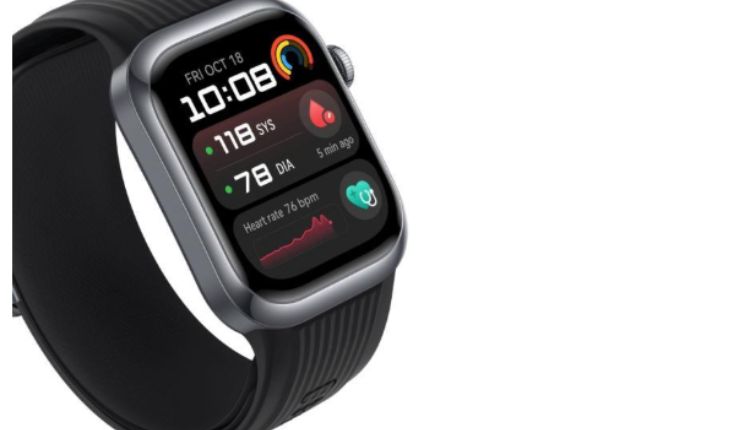Blood pressure monitoring is crucial for maintaining the health and well-being of the elderly. As we age, our bodies undergo various changes that can affect blood pressure regulation. Consequently, it becomes essential to keep a close eye on blood pressure levels to prevent potential complications. Regular monitoring helps in early detection of issues, enabling timely medical intervention. This blog explores why blood pressure monitoring is vital for seniors, best practices for effective monitoring, and how modern tools like the HUAWEI WATCH D2 can enhance elderly health monitoring.
Why Is Blood Pressure Monitoring Crucial for the Elderly?
Common Risks of Unmonitored Blood Pressure
Ignoring blood pressure monitoring in the elderly can lead to severe health risks. High blood pressure, often referred to as the “silent killer,” may present no symptoms but increases the risk for heart attacks, strokes, and kidney disease. By the time symptoms such as headaches, dizziness, or shortness of breath emerge, damage may already have occurred. Elderly individuals with unmanaged blood pressure are more vulnerable to these life-threatening conditions, which underscores the necessity of regular monitoring and timely medical attention.
How Aging Affects Blood Pressure Regulation
As individuals age, arteries can become stiffer, making it harder for the heart to pump blood efficiently. This natural aging process can lead to increased blood pressure. Furthermore, age-related changes in renal function and hormonal regulation can impact blood pressure control. Medications, lifestyle changes, and health conditions such as diabetes and obesity also contribute to blood pressure fluctuations. Consistent monitoring allows for adjustments in healthcare plans, ensuring that seniors maintain optimal blood pressure levels.
Benefits of Regular Monitoring for Seniors
Regular blood pressure monitoring provides numerous benefits for elderly individuals. It enables early detection of hypertension or hypotension, facilitating prompt medical intervention. With continuous monitoring, healthcare providers can closely track treatment effectiveness and make necessary adjustments. Additionally, frequent measurement fosters a sense of empowerment and awareness for seniors, encouraging adherence to healthy lifestyle choices. By maintaining stable blood pressure, the elderly can significantly reduce their risk of cardiovascular events and improve their overall quality of life.
What Are the Best Practices for Monitoring Blood Pressure?
Choosing the Right Tools for Accurate Monitoring
Selecting the appropriate blood pressure monitoring tools is essential for obtaining accurate readings. Home monitors should be user-friendly, reliable, and validated for accuracy. Features such as large displays and automatic inflation cuffs can enhance usability for seniors. It is advisable to choose devices that store readings over time, allowing for trend analysis. Consulting with healthcare professionals can help in selecting devices that cater to individual needs, ensuring accurate and consistent blood pressure monitoring.
Daily Habits for Effective Blood Pressure Control
Incorporating daily habits can play a significant role in maintaining healthy blood pressure levels. Regular physical activity, such as walking or swimming, helps improve cardiovascular health. A balanced diet rich in fruits, vegetables, whole grains, and lean proteins can support blood pressure management. Limiting salt intake and avoiding excessive alcohol consumption are also crucial. Stress management techniques, such as meditation and deep breathing, can further aid in controlling blood pressure. Consistent adherence to these habits promotes a healthier lifestyle and better blood pressure regulation.
Integrating Modern Technology for Better Insights
Modern technology offers advanced solutions for seamless blood pressure monitoring. Wearable devices like the HUAWEI WATCH D2 provide continuous and automatic tracking of blood pressure, heart rate, and other health metrics. These devices offer real-time data, easy-to-understand reports, and connectivity with health apps, facilitating comprehensive health monitoring. Reading a huawei watch d2 review highlights how embracing technology enhances the accuracy and convenience of blood pressure monitoring, making it easier for seniors to stay informed and proactive about their health.
How Does the HUAWEI WATCH D2 Support Elderly Health?
Features Tailored for Blood Pressure Tracking
The HUAWEI WATCH D2 excels in blood pressure tracking with its cutting-edge TruSense system. It includes a precise pressure sensor, mini pump, and inflatable airbag to ensure accurate measurements. Users can initiate a 24-hour auto-monitoring plan to track blood pressure fluctuations throughout the day and night. The device captures both systolic and diastolic readings, providing valuable insights into blood pressure trends. This comprehensive monitoring system helps seniors maintain optimal blood pressure levels effortlessly.
Advanced Health Metrics and Reporting
Beyond blood pressure, the HUAWEI WATCH D2 offers advanced health metrics, including pulse rate, ECG analysis, and SpO2 levels. With just a touch of the electrode, users receive real-time ECG data to screen for common heart conditions. The watch generates intuitive reports featuring six key health indicators, which are displayed in easy-to-read graphs and charts. This detailed analysis enables seniors and their caregivers to make informed health decisions, enhancing overall well-being.
Enhancing Senior Wellness with User-Friendly Design
The HUAWEI WATCH D2 prioritizes user comfort and accessibility. Its lightweight design, combined with a 1.82-inch AMOLED display, ensures clear visibility even in bright light. The watch is sweat-wicking and skin-soothing, making it comfortable for prolonged wear. With features like customizable watch faces, Bluetooth calling, and 80+ exercise modes, the device integrates seamlessly into daily life. These aspects make blood pressure monitoring and overall health management more convenient and enjoyable for seniors.
Conclusion
Consistent blood pressure monitoring is crucial for maintaining elderly health and preventing severe health complications. Implementing best practices, such as selecting the right monitoring tools and adopting healthy daily habits, can significantly impact blood pressure control. The HUAWEI WATCH D2 stands out as a modern solution, offering comprehensive blood pressure tracking and advanced health metrics in a user-friendly design. By leveraging such technology, seniors can take proactive steps towards better health and enhanced quality of life.


